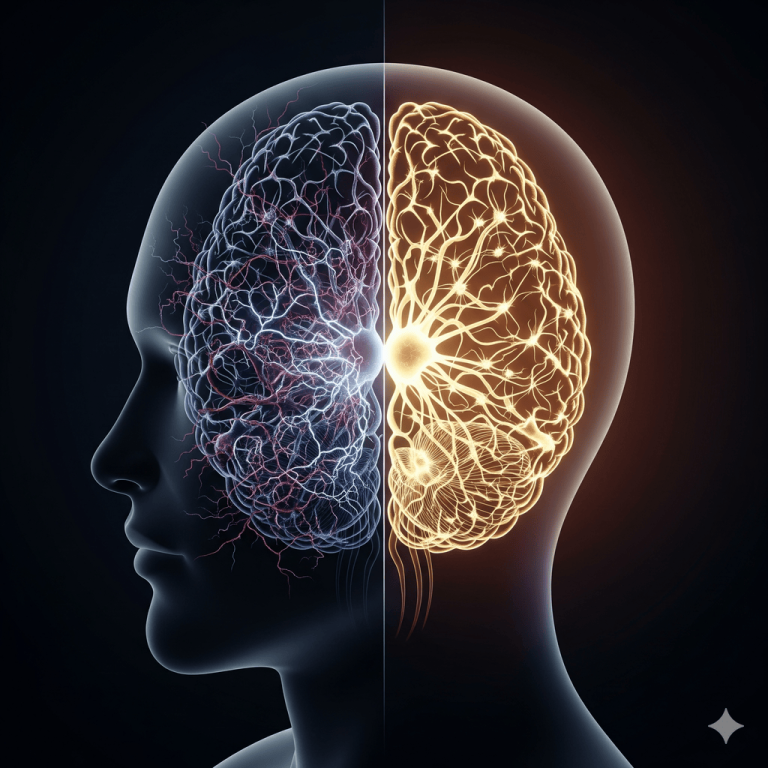Harvard Neuroscientists Warn: This 1 Mental Habit Is Aging Your Brain by 10 Years. Here’s How to Stop It.
Do you ever feel like your mind is racing uncontrollably, the weight of daily worries becoming heavier with each passing hour? That’s not just a feeling. It’s a real biochemical process wreaking havoc on your body from the inside out. New discoveries in neuroscience and longevity science show that one seemingly innocent mental habit can accelerate your brain’s aging and shorten your life.
The Toxic Cocktail You Serve Yourself Daily
Imagine every worry—an unfinished project, a difficult conversation, financial uncertainty—is a small weight. When you think about it for a moment to find a solution, it’s productive. But what happens when you carry that weight all day long, and even take it to bed with you?
Your body shifts into “fight or flight” mode. Your adrenal glands start pumping cortisol, the stress hormone. In small doses, it’s essential for life. In chronic mode, however, it becomes a silent killer.
“Chronic stress is like an acid that slowly dissolves the foundations of our health,” says Dr. Elissa Epel, a psychologist at the University of California and a leading researcher on the impact of stress on cellular aging.
Her research has proven that elevated cortisol levels lead to:
- Telomere Shortening: The protective caps on our chromosomes get shorter. Shorter telomeres mean faster aging and a higher risk of disease.
- Chronic Inflammation: The root cause of most modern diseases, from heart disease to Alzheimer’s.
- Hippocampal Shrinkage: The area of the brain responsible for memory and learning actually gets smaller.
This mental habit is chronic rumination. It’s the mental “chewing” of problems without any movement toward a solution. This is the process that is aging your brain.
How to “Put the Weight Down”: A 3-Step Cognitive Release Technique
The good news is you are in control. You can train your brain to “put down” these weights and break the toxic cycle. Here is a simple but incredibly effective technique you can apply today.
- Notice and Name (The “Aha!” Moment): The first step is awareness. The moment you feel yourself falling into a negative thought loop, stop and say to yourself, either out loud or in your head: “I am ruminating. I am holding the weight right now.” Simply naming the process jolts your brain out of its automatic mode.
- Schedule a “Worry Slot”: Instead of letting worries hijack your entire day, assign them a specific, 15-minute slot, for example, at 5:00 PM. When a worry pops up during the day, tell it: “Thank you, I see you. I will deal with you at 5:00 PM.” This gives you a sense of control and frees up your cognitive resources.
- Redirect Your Attention (The Cognitive Shift): Immediately after “putting down” the thought, engage your senses in something else. Stand up and do 10 squats. Focus on your breath for 60 seconds (inhale for 4 seconds, hold for 4, exhale for 6). Listen to one song, focusing only on the music. The goal is to break the neural pattern.
This technique isn’t about ignoring your problems. It’s about taking back control and deciding WHEN and HOW you deal with them.
As Stanford neurobiologist Dr. Andrew Huberman puts it: “You cannot control the external events, but you can learn to control your internal response to them. That is the foundation of mental and physical health.”
Your potential is written in your habits. Do you know how your daily choices are impacting your predicted lifespan?
Chronic stress is just one of many factors. Diet, sleep, physical activity, and even your social connections all create the complex map of your longevity. Stop guessing. Discover what the science says about you.
Want to discover your personalized longevity potential? Take our 3-minute assessment powered by the latest research and AI algorithms. Get a report that could change your future. Click here to start!
Interesting Scientific Publications:
- Stress and the aging brain – J.J. Bangasser & R.J. Valentino, PubMed
- Allostatic load and its impact on health and longevity – B.S. McEwen, The New England Journal of Medicine
- Mindfulness practice leads to increases in regional brain gray matter density – B.K. Hölzel et al., Psychiatry Research







